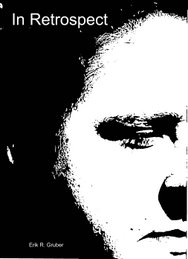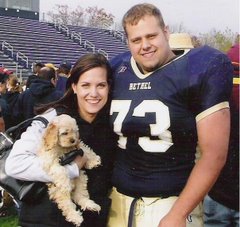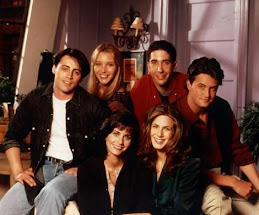“We hunger to be known and understood. We hunger to be loved. We hunger to be at peace inside our own skins. We hunger not just to be fed these things but, often without realizing it, we hunger to feed others these things because they too are starving for them. We hunger not just to be loved but to love, not just to be forgiven but to forgive, not just to be known and understood for all the good times and bad times that for better or worse have made us who we are, but to know and understand each other to the same point of seeing that, in the last analysis, we all have the same good times, the same bad times, and that for that very reason there is no such thing in all the world as anyone who is really a stranger.”
Frederick Buechner
I realize that the “connectedness of humanity” is a fairly general statement and is more of an idea than a concrete subject, but I figured start big and narrow it down from there. Plus, I believe that our reluctance to accept this is one of the biggest obstacles to both our survival and our harmony, and once we realize that we are all connected many of the peripheral problems that afflict the world will solve themselves.
As a species we hold so much animosity, anger and hatred based upon arbitrarily drawn lines of region, religion, race and language. Over the years we have built this artifice of the ownership of territory (I’ll get to this another day), and we huddle together with the people who look and believe as we do in this territory we claim as our own, united by tradition and the collective rejection of anything foreign (this is not aimed directly at America. It is true of all (or most) cultures). We have organized and divided ourselves base on imagined differences; some petty (race) and some seemingly insurmountable (ideology, religion).
Is this the way it’s supposed to be?
Our divisions are largely manmade. Ultimately, we are all human beings. We are all descended from the same lineage, and therefore we are all brothers and sisters (kind of gross when you put it in a sexual context, but let’s not go there). We all started in the same place, then we created divisions. Our differences are human constructions. They are not inherent, they are (or were not originally) engrained in us from birth. Yes, we may have different colored skin, but this is a regional attribute based on environmental factors. We speak different languages, but this is a learned trait. We believe different things, but we are united by the fact that we all seek Truth. We’re all at different places in that search, but I genuinely believe that there is one Truth that will one day fully reveal itself to us all, making our theological arguments seem quite foolish.
There is no us, there is no them: it is only we. We have been put on Earth to share in this experience. We are bound together in the struggle for survival, the quest for love, happiness and understanding. Whatever happens in Asia or Europe or Antarctica is a part of my life experience, as it is a part of yours.
When a child is starving in Africa, when a soldier is dying on the battle field, when a woman is being beaten in the Middle East, that is my reality. That is our reality. That pain is our pain. The suffering our own. That is our world that we share.
And to use a sports cliché: “we are only as strong as our weakest link.” We must strive to lift up our brothers and sisters for the betterment of us all.
Here’s a good way to think of it: “To say that my fate is not attached to your fate is like saying ‘your side of the boat is sinking.’” (Not attributed) The fate of the world is our shared responsibility, and the shape the future will take is in our hands. We must realize that we do not have individual fates. We are fragments of a much larger whole, and to deny this is to deny our nature as social, communal creatures.
Once we can truly accept that we are all connected, caring for others, for the least of these, will cease to be a burden. There will be no need for charity (which creates an unspoken, unofficial caste system of those who give and those who need). We will all dedicate our passions and our gifts to the betterment of the world.
Thanks for reading.
Subscribe to:
Post Comments (Atom)


















3 comments:
An article that gets at the heart of who we are. It's a great reminder that we are all on this Earth together. You are getting rather Postmodern on me Groobs. I like it! I think this a great article for those who hold their beliefs so tightly that it separates them from their opposition. Democrats against Republicans, Conservatives against Liberals, American Public against Bush...the list goes on...
Give me a moment to disagree with you oh wise Zot. Your comment on theological arguments hits me right my perverbial nuts! I agree that holding and separating due to theology is dangerous and counter to the purpose of theology in the first place, but theologically arguing (in love) is terribly important. I really have to go to the bathroom right now so I shall argue more later. So hold tight, will post after my date with the infamous Dianne Rhea! (If you know what I mean!)
It makes me sad to read your post Gruber... This is why.
Because I know the heart you have for these things and the hearts that a lot of us have. It makes me sad that there is so much hatred in the world combating the good that so few are trying to do.
How do you break down the walls of hundreds of generations of thinking the same way and doing the same things? There are so many out there that either opose a connected humanity, or just don't care about it so how can anything move forward?
Again, I love talking about this and it give you hope, but it makes me sad to think about how far off this is as a reality.
It is sad that this post has to be so theoretical. It's a reality that we won't see in our lifetime, and will most likely never exist. It is a point of optimism, however, that there are a few of us who see that there could be a better way.
late night cassel, didn't mean to put down theological arguments, and I didn't mean to imply that they are necessarily a bad thing. When they lead to a deeper level of understanding they can do wonders to add to our sense of connectedness. And I believe that any time we intentionally and deliberately seek Truth, no matter how misguided our attempts, it is glorifying to God.
What I meant to say was that when the day comes that the Truth is fully revealed our disagreements and disputes will, in retrospect, seem petty and foolish because we will finally all be looking at the same Truth.
Post a Comment